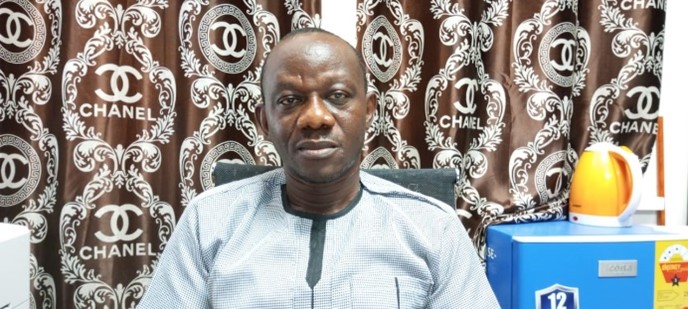The Liberian education system stands at a critical juncture, poised for transformation yet grappling with systemic challenges. Mr. Abraham A. Kiazolu, Lead Coordinator of the Improving Results in Secondary Education (IRISE) Project at the Ministry of Education, advocates for a fundamental shift in approach, urging a decisive separation of politics from education. He argues that the persistent practice of politically motivated appointments, particularly for County Education Officers (CEOs) and District Education Officers (DEOs), undermines the very foundation of educational progress. Meritocracy, he emphasizes, must be the guiding principle in selecting individuals for these pivotal roles, ensuring that competence and expertise, not political affiliations, dictate leadership within the education sector. The consequences of prioritizing political expediency over qualification are dire, jeopardizing the quality of education and hindering the nation’s development.
The IRISE Project, a collaborative endeavor with the World Bank, exemplifies the transformative potential of strategic investment in education. Funded by a US$40 million grant from the World Bank in 2018, the project has made significant strides in enhancing the quality of education in Liberia. Central to IRISE’s success is its focus on teacher training, equipping educators with specialized knowledge and skills necessary to effectively guide students. The project adheres to a rigorous selection process, ensuring that only qualified and competent individuals are entrusted with the responsibility of shaping young minds. This commitment to quality underscores a crucial principle: academic credentials alone do not guarantee teaching proficiency. The project’s emphasis on targeted training reflects a deep understanding of the nuances of effective pedagogy and a dedication to providing students with the highest quality instruction.
Addressing the infrastructural and demographic challenges facing the Liberian education system is another key focus of IRISE. Studies conducted across various educational districts have revealed a stark disparity between the availability of secondary schools and the burgeoning student population, particularly in underserved areas. This gap underscores the urgent need for increased investment in educational infrastructure to accommodate the growing demand for access to secondary education. Furthermore, the project has championed gender equality in education, deploying gender coordinators in government-run schools, which has resulted in a notable increase in female enrollment, surpassing that of their male counterparts. However, a concerning trend has emerged, with a growing number of boys, particularly in rural regions, opting to abandon their education in favor of commercial motorbike riding. This phenomenon necessitates innovative strategies to re-engage these boys and emphasize the long-term value of education.
The IRISE Project’s comprehensive approach targets improvements across multiple facets of senior secondary education (grades 10-12). It employs innovative strategies to enhance access, elevate teaching quality, and strengthen system development, all within the constraints of a resource-limited environment. The project’s multifaceted structure is organized into six key components: improving teaching in senior secondary education, closing the access gap in secondary education, and increasing completion prospects for girls. Furthermore, it leverages technology for learning and digital skills development, invests in capacity building and technical assistance, and ensures effective program coordination. This holistic approach recognizes the interconnectedness of these elements and strives to create a synergistic effect, maximizing the project’s impact on the overall education system.
The IRISE Project’s collaborative nature is vital to its success. The project works closely with the Ministry of Education and universities, providing crucial technical assistance and support. This collaborative framework ensures alignment with national educational goals and fosters a sense of shared responsibility for the project’s outcomes. Mr. Kiazolu, as Lead Coordinator, plays a pivotal role in this collaboration, guiding the project’s implementation and advocating for its continued expansion. He reiterates the critical need to depoliticize the education sector, emphasizing that qualified and competent personnel are essential for achieving sustainable and meaningful transformation. This separation of politics from education is not merely a matter of good governance but a fundamental prerequisite for creating an environment conducive to learning and growth.
The future of Liberia’s education system hinges on the ability to learn from the successes of initiatives like the IRISE Project. The project’s emphasis on merit-based appointments, targeted teacher training, infrastructure development, and gender equality offers a compelling roadmap for progress. However, the challenge of retaining boys in school, particularly in rural areas, demands continued attention and innovative solutions. Extending the reach of the IRISE Project, in partnership with the World Bank and the Liberian government, is crucial for ensuring that its transformative impact reaches all corners of the nation. Ultimately, the realization of Liberia’s educational aspirations depends on a collective commitment to prioritize education as a cornerstone of national development, free from the corrosive influence of political agendas. The depoliticization of education is not just a desirable goal but an imperative for unlocking the full potential of Liberia’s youth and securing a brighter future for the nation.


